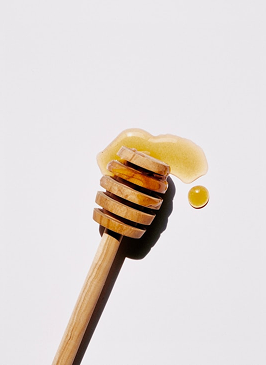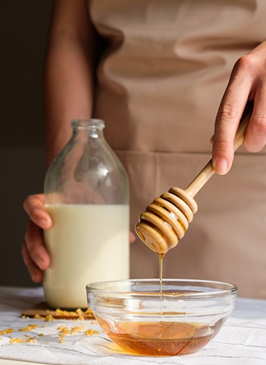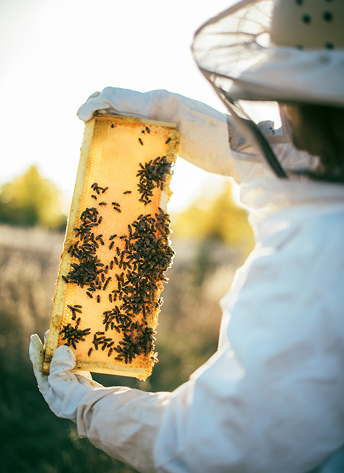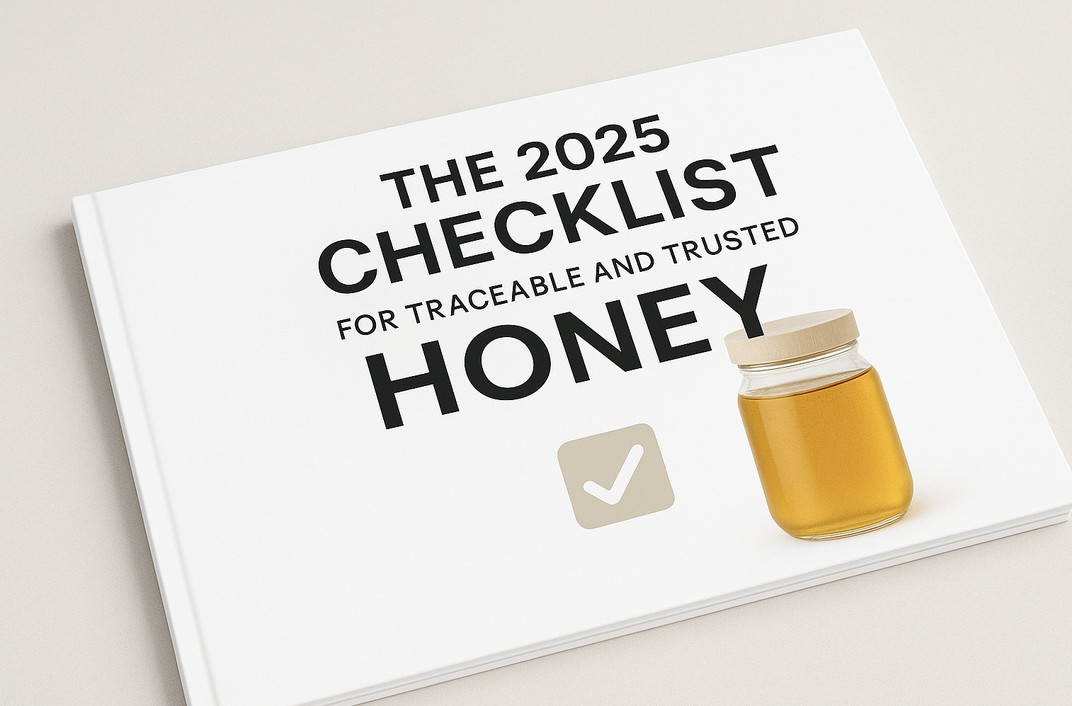A Closer Look
Honey Overview




Honey
Behind the Label: What Honey Really Tells Us
Honey isn’t just a pantry staple — it’s a $9 billion global industry (Statista, 2024). From Zambia to New Zealand, it supports rural economies, safeguards biodiversity, and represents one of the oldest natural foods still traded today. But behind the golden glow lies a supply chain that’s under increasing strain.
The Problem: Fraud, Adulteration, and Access
One of the most persistent challenges in the honey industry is fraud. According to a 2020 European Commission report, nearly 1 in 2 honey samples tested in the EU were suspected of being adulterated with sugar syrups (European Commission, 2020). This widespread dilution not only misleads consumers but drives down prices, hurting honest producers who can’t compete with synthetic knockoffs.
The Centre for Science and Environment (CSE) in India also found that 77% of popular honey brands tested were adulterated with added sugars (CSE, 2020).
In parallel, regulations are tightening. The European Union’s ‘From the Hive’ Directive and broader EUDR (EU Deforestation Regulation) mandate traceability and sustainability in honey sourcing. These rules mean that without transparent documentation, many producers — especially in Africa, Asia, and Latin America — will be shut out of European markets.

The Cost: Disconnection and Disempowerment
When producers can’t prove their product’s origin or quality, they’re excluded from premium buyers. This is particularly damaging in countries like Zambia, where over 30,000 smallholder beekeepers rely on honey for income (Nature’s Nectar Zambia, 2023). Instead of benefiting from growing global demand, they’re often forced to sell to middlemen for a fraction of the price.
A 2022 study in the Journal of Apicultural Research emphasized how access to transparent supply chains is directly linked to income stabilization for rural producers (JAAR, 2022).
The disconnect doesn’t end there:
Consumers are robbed of the ability to choose ethically.
Retailers face reputational risks when sourcing is opaque.
Producers lose agency over their own product story.

The Opportunity: Traceability as a Bridge
This is where traceability becomes more than a buzzword — it becomes a lifeline.
When producers can log and share proof of:
Harvest dates
Storage and handling practices
Geographic origin
Sustainability efforts (e.g., non-deforestation zones)
…they unlock the ability to:
Enter markets with strict compliance demands
Negotiate better prices
Build long-term trust with buyers and consumers
As Dr. Norberto Garcia, president of the International Honey Commission, notes: “Traceability is not a luxury — it is essential for a fair and functioning honey market.”


What We’re Doing About It
At Palmyra, we’ve partnered with Nature’s Nectar Zambia to bring traceability to over 2,500 beekeepers across Central Province. By using simple mobile tools connected to the blockchain, producers can now:
Record harvests in real time
Prove non-deforestation compliance
Share verified data with buyers across Europe
This system doesn’t just satisfy regulators. It tells a story — a story of craft, care, and connection.
As Kofi Annan, former UN Secretary-General, once said: “When farmers know their efforts matter and are seen, the entire food system becomes more equitable and resilient.”
Traceability Isn’t About Tech — It’s About Trust
At its heart, honey traceability isn’t about fancy dashboards or data protocols. It’s about fairness. It’s about helping the right producers get rewarded for doing the right things.
If you’re a producer, buyer, or brand that wants to help fix the honey supply chain — while building a business that’s future-proof and fair — we’d love to talk.
The 2025 Checklist for Traceable and Trusted Honey


Theodore Morisis
Director of Business Development Palmyra®
From Olive Groves to Blockchain:
Greek Olive Oil Tokenization

Main Regions
Zambia
Africa, Zambia
Focus Areas
Traceability
Tokenization
Solutions
Palmyra Pro
Palmyra App